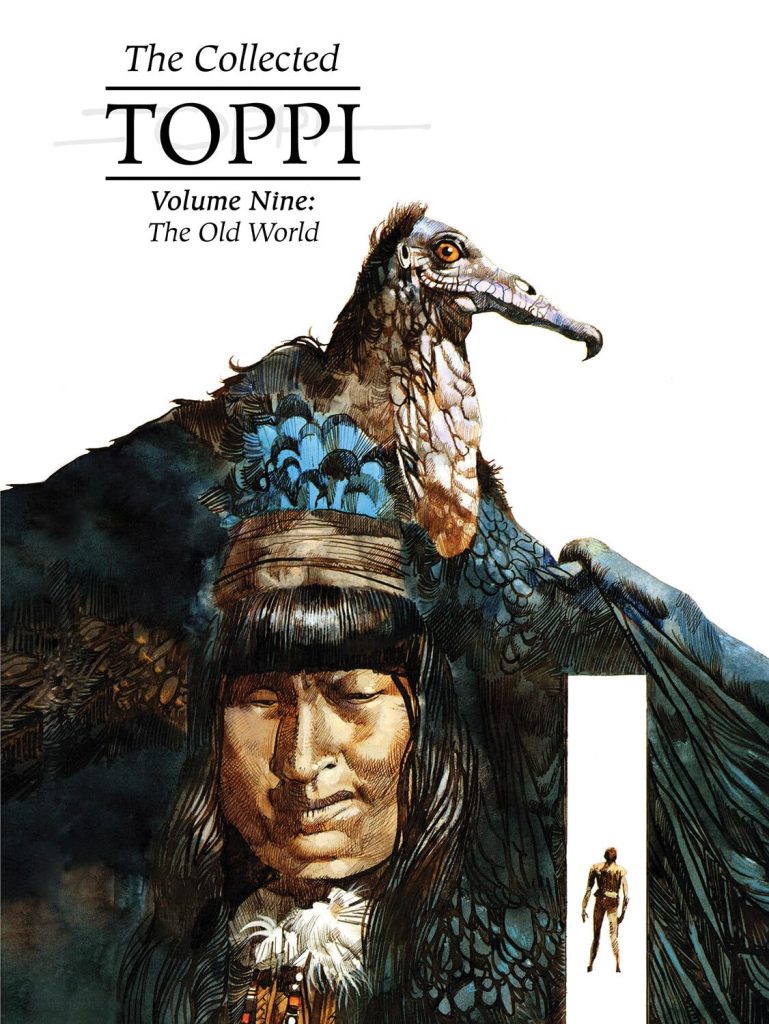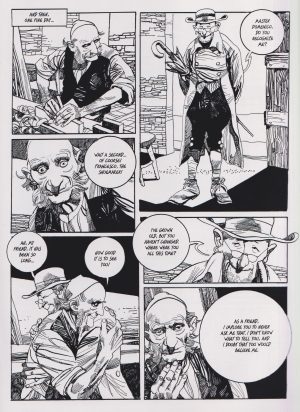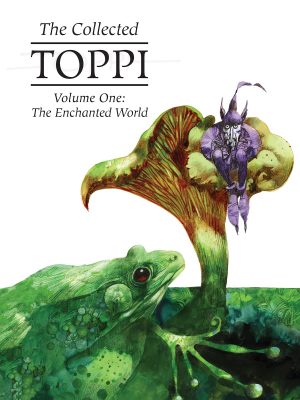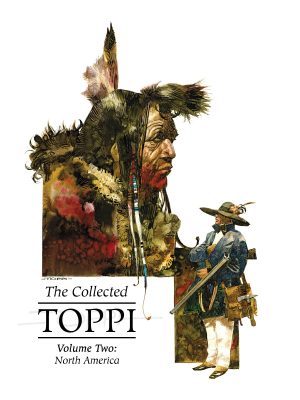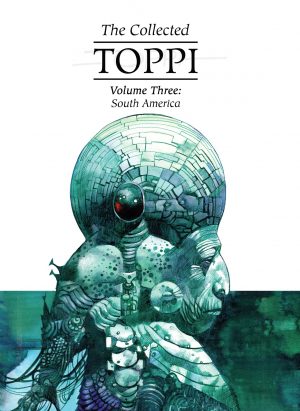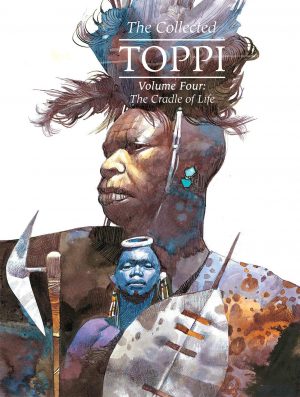Review by Frank Plowright
It’s certainly not apparent from the cover, but The Old World is a catch-all title for a broad variety of stories created by Sergio Toppi between 1978 and 2001, each of them featuring at least a single character from pre-18th century Europe.
The cover depicts the final inclusion ‘Hypothesis 1492’. in which Toppi considers what might have happened if all the ships commanded by Christopher Columbus in 1492 had succumbed to a storm. The sole survivor washes up on a remote island where a strange vulture-like bird is the repository for the region’s history, talking to the island’s chief and carrying out instructions. It’s a whimsical tale, and one of several in which the point is made that the European sense of superiority is a fallacy. The chief and his people lead perfectly contented lives untroubled by thoughts of riches or national prestige. Follies investigated in other stories include the Catholic church massacring non-believers in the name of faith, and the possibility of demons setting fires.
Three inclusions are obliquely noted as “based on a subject by Ariel Macchi”, with Macchi being an Italian comic writer. How far his contribution extended has been deliberately obscured, and two of the three are far more illustration based than even Toppi’s usual work. However, as engaging as his fables can be, the true wonder of Toppi’s pages is the art. Here again we have stunning illustrations, evocative portraits, and a host of memorable images. Feral beasts are depicted alongside assorted people, dignity always paramount whether those people are European or otherwise.
At 34 pages, the longest story here is Toppi’s leisurely alternate version of Rip Van Winkle from 1989. He recasts the lead role, providing it to a Tuscan craftsman in the mid 19th century who doubles as the local teacher, and despairs of the taxes he’s annually charged. He recognises the place in which he awakes, but not the people or their customs, with the point being made about how much can change in a period of roughly 25 years. It’s a pleasing pastoral tale treated almost as biography rather than drama or comedy.
Comedy is rare anyway in Toppi’s output, but there is a particularly whimsical ending to ‘Song of Roland’, which renders the entire piece as merely a conduit for some people and scenes Toppi wanted to draw without the bother of constructing an entire story around them.
While presenting considerable variety and astonishingly good art, by Toppi’s own extraordinary standards this is a marginally lesser collection, yet were it to be anyone’s first exposure to Toppi’s mastery they’d be blown away. Volume Ten: Future Perfect collects Toppi’s SF stories.
